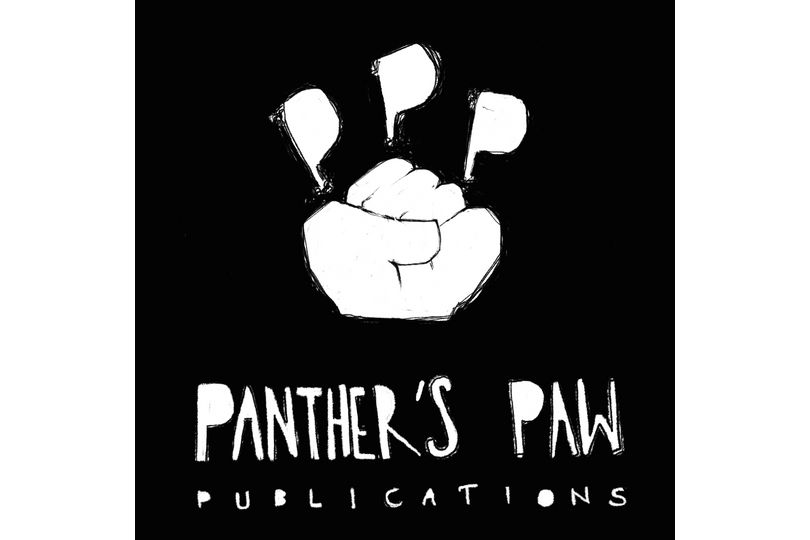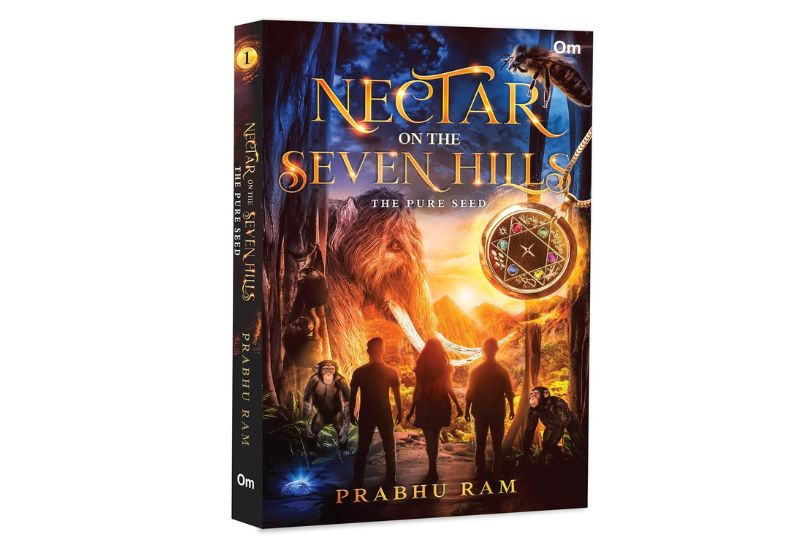The Unheard Word: A Struggle For Survival In Maharashtra by A Dalit Publishing Company
on Aug 30, 2022

In 2016, a year after receiving my Master's degree from TISS in Mumbai, I launched Panther's Paw Publication. In terms of working expertise, I didn't have any money or publishing capital at the time. Furthermore, it is rare akin to insanity for a first-generation student to be resolved to be a publisher in India, where people are spending less and less money on books and where there is absolutely no assurance of financial or cultural support. But back then, I realized I just had one option if I wanted to pursue publication. I knew there were folks who understood why I wanted to do it. Living in Mumbai for three years, I've met a few anti-caste activists who are bookworms in their own right. Listening to their life tales, in which their intellectual ambitions confronted their practical wants and necessities, gives me strength as a publisher. Their belief in literature became my own journey with books. Nobody aspires to be a publisher. One gets dragged into it. So, what attracts a Dalit to English-language publishing?
In India, a Dalit individual can be killed for everything under the sun, including riding a horse at a wedding, wearing a mustache, drinking water, loving someone outside his caste, or having a ringtone of a song celebrating Ambedkar's legacy. In a caste society, a Dalit can be murdered for exercising common sense. A Dalit person's voyage into the realm of words, writing, publishing, and circulating them in caste society, is a significant event that comes at a cost, risk, and danger. To be able to create, publish, and distribute his stories, history, songs, and so on, a Dalit must confront his own dread and choose between fear and fighting (against caste) with his only weapon, books.
So, what is a Dalit doing writing books in English? This is a question I frequently ask myself, and the answer is difficult but worth studying. This experiential commonality of my community is relevant to what I do because it involves the stories and histories of my people, and once you engage in intellectual production in relation to your community's struggle, history, and achievements, you are already in a position of being responsible for the next generation and how they will perceive your past and their history. But why would an oppressor (majority caste communities in India) read the oppressed words? And, if so, would they publicize it? Most don't since it jeopardizes their interests in social, cultural, and intellectual realms, as well as their relationships with family and friends. In my six years as a publisher, the number of individuals who buy our books has risen, yet there has been no conversation about the works I've produced among those in charge of cultural circulation and promotion.
They buy and read our publications. However, these novels are not mentioned. It means that the declaration that I have published books is missing. Furthermore, Dalit literature is not connected with beauty or enjoyment. Rather, the aesthetic principles on which it is founded—justice and freedom, to name a few—are rarely desired or practiced in caste society, as these are based and fed on an 'ascending scale of reverence and descending scale of contempt,' as Ambedkar put it when defining the nature of caste society.
J.V. Pawar, a founder member of the Dalit Panthers, and I met in Mumbai in 2016. After Ambedkar's death, he sent me five volumes of his Marathi works, all of which were about the Ambedkarite cause. In a rush, I finished the first book. It helped me understand what had gone wrong with us when Ambedkar died. I've been interested in English since I first realized that language could help me comprehend the world better. So I decided to tell the world my tale in this language. Around October of the same year, the book Ambedkarite Movement after Ambedkar was released, and Panther's Paw Publication was founded. Why did I bring up the process of translating and releasing a book? Let me say it simply. Dalits are on the outside of society. They are also outside of India's literary debate. In India, narratives of the Dalit community—basically, criticisms of popular or Brahminical narratives—are created in a variety of languages. It also implies that the influence of their stories is limited to the linguistic region in which they were written.No matter how compelling a Telugu narrative is, its influence is restricted to a Telugu-speaking state until it is translated into other languages. As a result, Dalit literature is seldom censored—not because it does not offend Brahminical sensibilities, but because it is restricted to a certain linguistic state and is not allowed to infiltrate the national consciousness. Even at the start of my publishing career, I recognised the power of translation as a cultural process and language act. Of course, we find mention of Dalit writing here and there, but it seldom causes a stir at the national level.
Another reason Dalit writing no longer provokes censorship is that it has become self-centered, asking internal critiques rather than problematizing oppressors. So, if a Savarna reads a tale about a Dalit person's struggle without feeling the need to introspect about his own involvement in the chain of this opposition, he will never feel the need for it to be censored. We restrict everything that threatens our interests and existence. Of course, there are readers who feel that stories that make them aware of their own flaws are necessary, but they are the exception. They are not the norm. Also, the critical question is: do people in India read literature out of habit, and if so, how many? When I discover the solution to this question, I begin to feel disappointed.
Before I go any further, let me mention some notable but depressing advances in Dalit writing. Dalits have been writing for decades across languages and linguistic areas. However, this does not imply that they have social capital in this area. Dalit-founded publishing businesses have operated for several decades in Maharashtra, Tamil Nadu, Telangana, Karnataka, Punjab, and Gujarat, largely run by members of the greater Dalit movement. And they frequently see their publishing endeavors through the lens of the anti-caste campaign. It is an evident fact that publishing is essential for the Dalit community to survive. It is because popular literature and culture are completely rejecting their worldview. Distribution and the creation of dialogue are important aspects of publishing. Although Dalit literature looks to have a bright future in terms of substance, it does not appear to have a good future in this sector. The publication of a book does not guarantee that it will affect our way of thinking until it is widely distributed. For example, I produced 1,000 copies of the Ambedkarite Movement after Ambedkar (Rs 399) and sold 900 in six years. In other words, I sold 2.5 books every day. The first five copies of the book, which I had placed in a communist-run bookstore in Mumbai called People's Book House, took six months to pay for, and they took a 40% fee on it.
But I had no other way to market my novels back then. Aside from that, Dalit literature is not a popular choice. This book has never been reviewed or discussed, as far as I know as a publisher or its translator. Neither within the Dalit community nor among academics, where I expected it to gain traction. As the years passed, I saw that reading as a habit was rapidly fading across classes and castes—a hazardous indication for a publisher like me, who publishes work in the English language that is still in its infancy in India. Dalits are split as a community by language and the geopolitics of linguistic states. It distinguishes their experiences in many facets of life, despite the fact that they are regarded as undesirable by caste society throughout India. In India, Dalits practice Christianity, Islam, Sikhism, and Buddhism. They chose conversion to avoid being labeled as untouchables.
However, if a Dalit from one of these minority communities writes a tale about his or her life today, he or she cannot avoid emphasizing the reality that the monster of caste still stalks him or her. Regardless of his religious beliefs, society regards him as a Dalit. That he decided to find emancipation from untouchability and Brahminical society says much about his battle against caste and society that adheres to social standards rather than against his faith. As a result, in the legends of Dalits from all religious beliefs, the battle against upper caste people is far more significant than the war against any God. Panther's Paw Publication was founded in 2016. I will have published 14 volumes of poetry, biography, history, fiction, and non-fiction by 2022. That works out to 2.3 novels each year. These were generally stories written from the standpoint of someone who wished to make their story visible, rather than from a desire to critically examine his marginalization in national culture. In truth, there is no national culture for Panther's Paw writers. They have reached a point where they may investigate their roots in their uniqueness rather than in connection to the meta-narratives established by Brahminical castes and society. Even releasing 2.3 books each year was a difficult endeavor, considering that I had to devote most of my attention to surviving in Mumbai, writing, dealing with a shortage of finances, and finding sympathizers to help me realize my goal. Nonetheless, I resolved to walk gently but steadily, not allowing despair to impede my progress. So, by 2020, while still in Mumbai, I had published six novels and sold less than 200 copies of them combined. March 2020 came as a surprise. I had to leave my hostel and many of my books behind since it was very difficult to transport hundreds of volumes I had produced as well as those in my own collection. I returned to my Nagpur house.
Losing contact with the outside world for a few months allowed me time to reflect on how to continue my trip. By July 2022, I had started using social media to promote my work. Because it was the only option to stay connected throughout the lockdown, individuals were more engaged with social media. I began to receive positive responses, and some even expressed an interest in purchasing the books. Unless a person asserts their identity on social media, you have no idea what caste, class, or society they belong to. It makes no difference to a publisher who buys the book. Those who purchased Panther's Paw books began sharing them in their stories, and a few in their postings. I acquired a regular readership among such persons. I started using social media to publicize and sell new books. I've also had orders from outside the nation that I've successfully delivered.
People were buying books on a regular basis in 2020-21 when Covid-19 was at its pinnacle. When people are lonely or looking for significance in their lives, they read more. However, when 2022 dawned and people began to return to their usual lives outside of their houses, book sales began to fall. The conditions under which I publish books have improved slightly, yet people are purchasing fewer and fewer books. Even those who were supporting our works on social media abruptly disappeared.
However, as a publisher, it is critical for me to continue releasing books even in such difficult circumstances, as well as to sell, circulate, and generate dialogue around them. It is incredibly difficult to distribute and sell our publications in the absence of a regular distribution mechanism. But I need to figure out how to accomplish it. When I first started out on my adventure, I had no one to cheer me on. I have a few today. I believe Dalit literature has survived throughout the years because it has continued to write works regardless of how many people read them. And I am part of the heritage left by my forefathers, who knew deep down that a book does not perish unless it is read. And once a book has found a reader, it does not die.



.jpg)






.jpg)

.jpg)
.jpg)

.jpg)
.jpg)










Sorry! No comment found for this post.